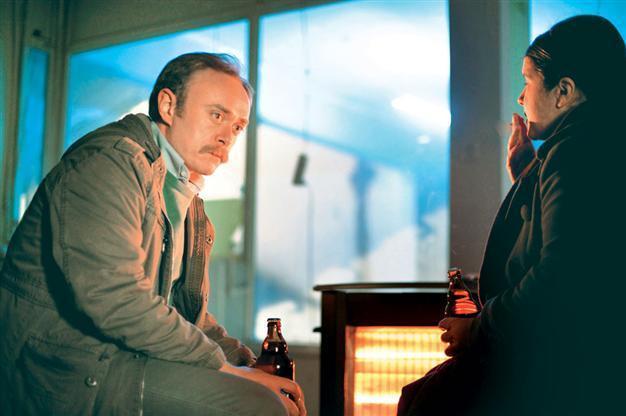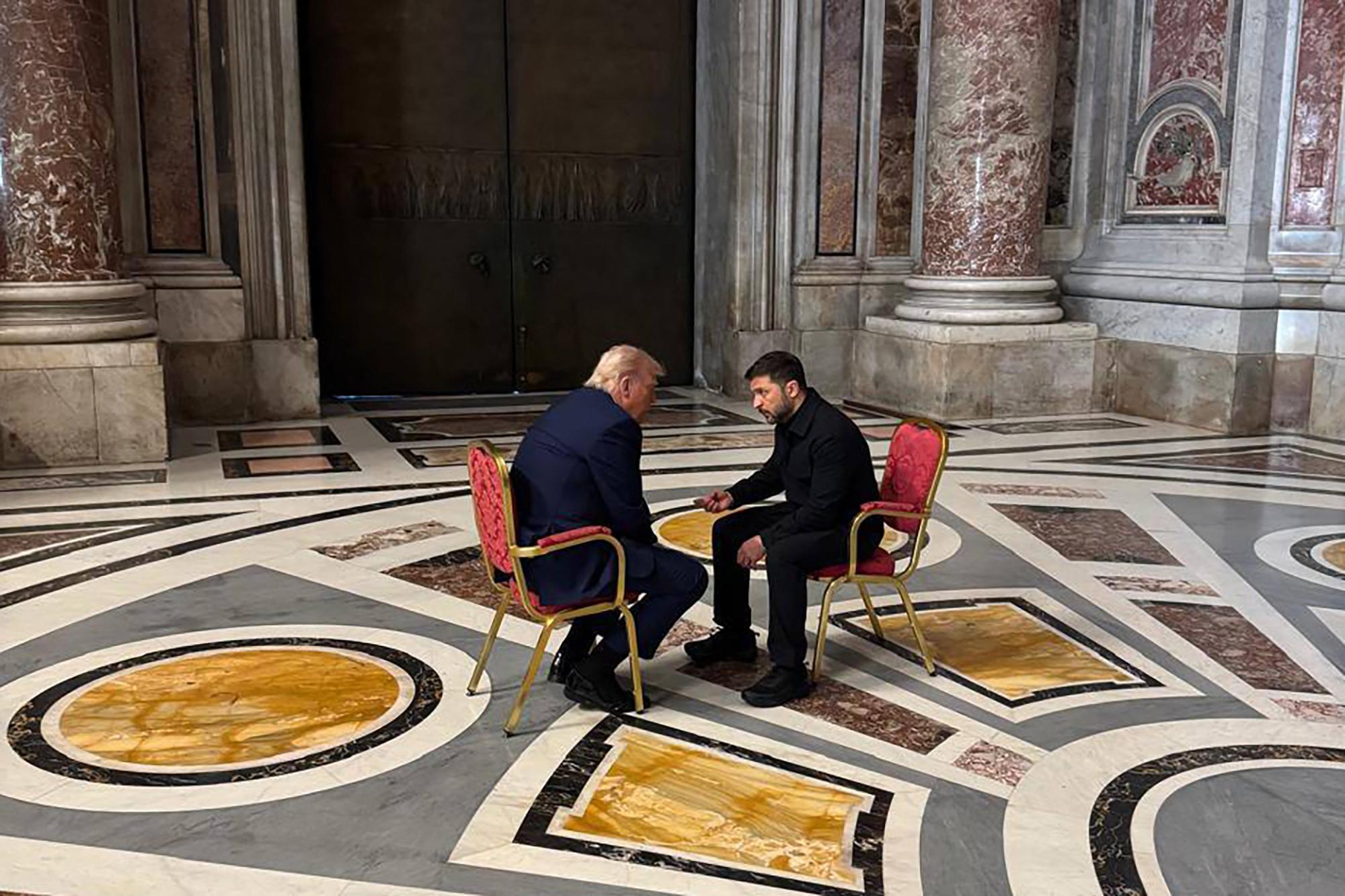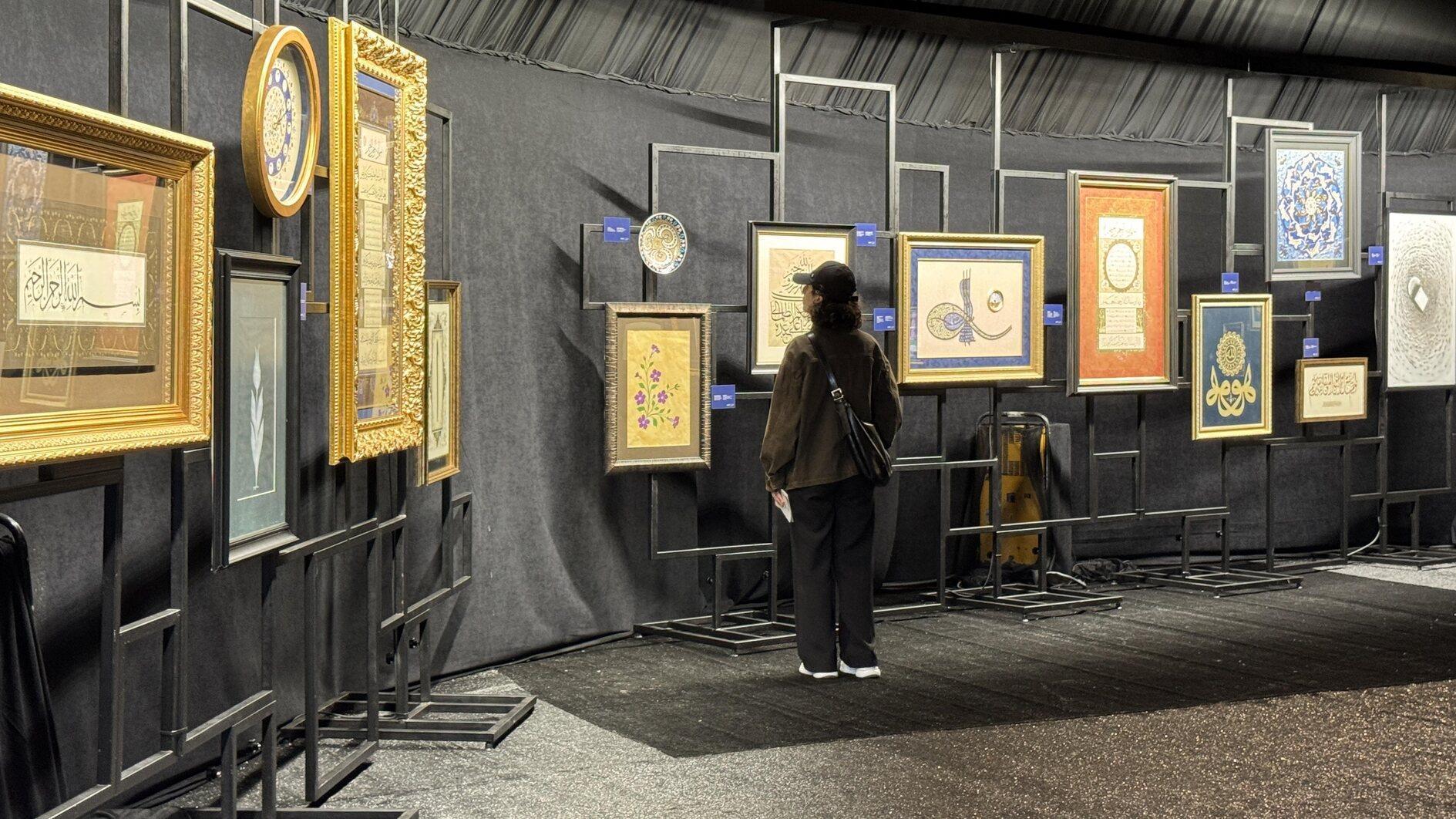‘Yozgat Blues’: A beautiful portrayal of the new rural
Emrah Güler

In the movie, characters spare minimum dialogue to maximum effect, a difficult job that earned its writers Best Screenplay award in the Golden Boll.
You will either not want to hear late American-French singer Joe Dassin’s song “L’été indien” ever in your life or be hooked on the song for days to come after having watched Turkish director MahmutFazıl Coşkun’s Golden Boll winner “Yozgat Blues.” The song is the only one we hear throughout the film from the repertoire of the leading character, a nightclub singer who has recently relocated from Istanbul to a small city in central Turkey.
Piecing the information from a couple of scenes in the first minutes of the movie, we gather that the leading character Yavuz (award-winner Ercan Kesal) did not have much of a promising music career in Istanbul to begin with as he accepts a job offer in the unexciting city of Yozgat. A bland certificate ceremony in what is presumed to be one of the stale courses of the municipalities of Turkey and, in which Yavuz is the teacher, as well as a performance in a shopping mall are the scenes hinting at a not-so-bright career in music.
Promoting products at a supermarket, Neşe (Ayça Damgacı) doesn’t seem to have a promising future career-wise either. One of the pupils of Yavuz, Neşe asks if she could join him in this new job in a different city. The two begin their lives quite awkwardly in a modest hotel suite they share as they begin their evening programs in a nightclub.
We only see the two singing “L’été indien,” Yavuz in the main vocals and Neşe belting back vocals to nothing more than a series of “Ba, ba, baa!” The performance is at best uninspiring, both Yavuz and Neşe displaying an enthusiasm for their work as mill workers would do. The audiences are not swept off their feet with the duo’s performance either.
Minimum dialogue to maximum effect
As Yavuz and Neşe settle into their new city and new lives, their lives veer in different directions. Yavuz becomes more fond of their co-habitation, with simple routines like the breakfasts enjoyed together, as well as of Neşe with her plumb beauty and gentle character. As for Neşe, she starts becoming more engaged with the city life, even if Yozgat doesn’t have much to offer.
She begins spending more time with the local barber Sabri (another award-winner, Tansu Biçer), who comes into the backstage everyday as the designated barber for Yavuz’s toupee, as well as Sabri’s radio host and pseudo-intellectual friend Kamil (Nadir Sarıbacak). Recording with Kamil, she feels more fulfilled artistically. And spending time with Sabri, she feels more fulfilled emotionally.
The small city life with its humdrum and affliction to emulate big city life become more pronounced as the movie furthers. Director and co-writer Coşkun was one of the festival guests in the recent Festival on Wheels, where he answered the answers of the audience. Coşkun said that he “wanted to tell the ‘new rural’ as you would call it, and the lack of a solid identity of the new rural.” He also said, “modernization in Turkey doesn’t happen as it happens in the West, gradually and answering certain needs, but as a direct imitation.”
This “lack of a solid identity” of the new rural, and its stunted modernization are opened throughout the film in details and dialogue that is at once funny and heartbreaking. This is not a movie that translates its witty and accurate observations into crude jokes and predictable dialogue. In fact, characters spare minimum dialogue to maximum effect, a difficult job that earned its writers Best Screenplay award in the Golden Boll.
The subtle humor (especially for the Turkish audience) and the love of the director (and writers) for its characters lie at the heart of “Yozgat Blues,” a movie that is definitely going to be a classic in time.
















